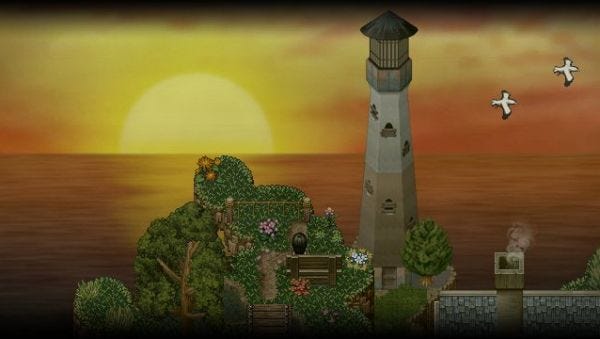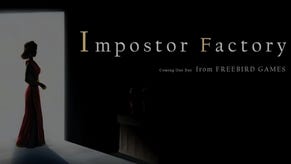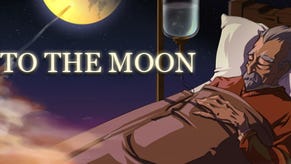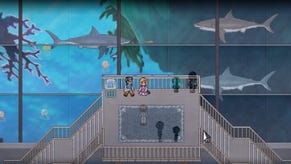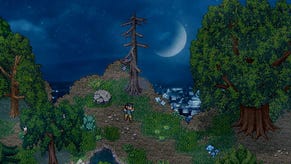Wot I Think: To The Moon
Lunar, see
Kan Gao's To The Moon first came to our attention thanks to Laura "Plants Vs. Zombies theme" Shigihara. (I do hope for her sake she can lose the moniker soon.) Her involvement with the game's music got us to take a look at early footage, and then it became something I desperately wanted to play. I was right to. No surprises here - this is an incredible game, and I'm going to tell you Wot I Think it is that makes it so.
I'm a wreck. I can't delay telling you: To The Moon is a truly wonderful game. It's the best game I've played this year. It's a pixel-graphics indie adventure, mostly made by one guy, with a preposterous premise, and yet after spending the day playing it I'm emotionally exhausted. I'm not sure whether to write a review, or curl up in the fetal position and hug a pillow.
I'm pretty terrified of describing it wrongly, and putting anyone off. Which is an odd state of mind after 12 years of this silly job. So I'll do the traditional, and give you the premise:
At some point in the future, there exists a technology that allows people to backtrack through a person's memories, such that they can create a complex timeline of their past, and implant new memories that create others, which create others still, that allows a person's wishes to be fulfilled. Albeit only in their memory, since the events never took place. It's a service that's provided, by the company involved here at least, to those who are dying. It's granting a dying wish, without the patient having to get out of their bed.
There are two characters controlled as you play, Drs Eva Rosalene and Neil Watts, frequently alternating between the two, although they're almost always together. They arrive at the house of an elderly man named John, who has recently fallen into a coma, and has only a day or so to live. His dying wish, as arranged with the company when he was more healthy, was the visit the moon. Why, he doesn't know, but that's what he wants to have done.
John lost his wife, River, two years back. Since then he's been living with a home help and her two children, and feeling pretty bereft. But the only way you're going to encounter John is through simulacra constructed within his own memories, which is where you'll spend the majority of the game.
But before you get there, there's so much more background here. The arrival of the two doctors begins with a car crash, as Neil swerves to avoid a squirrel and plants the car firmly into a tree. From this point on kicks off the banter between the two that will accompany you throughout. Neil is brash, unsentimental, and can't miss an opportunity for a joke. (When told "too soon" he replies, "It's never soon enough.") Eva is officious but gentle, keen to spot romance in a situation. Their non-stop jibing of each other quickly demonstrates a very believable years-long friendship, and also establishes the game's early focus on comedy. A focus that's going to shift.
The process by which the memory implantation works is somewhat contrived. A construct of the person's most recent memories is created, and from that space you must find five objects that are distinctively remembered by the patient. Once found you'll be able to use a more significant memory, usually a personal object, to link back to an earlier memory. Which more or less involves going around a scene and clicking on objects. Although it's not nearly that facile. This is all accompanied by the game's excellent writing, as well as the discovery of the importance of those items, and the roles they play in a narrative that's going to be spelled out to you backward. Once the key object is unlocked, you then (for some reason) have to solve a simple tile-reversing puzzle, and can then travel to the next memory. I'm not sure why those puzzles are in the game, but they're innocuous enough, and aren't going to trouble anyone.
To tell a story backward requires great skill. (Obviously it's the written law of the universe that one must mention Memento at this point.) It's an inevitably muddling experience for the player, so to keep things feeling like they're flowing forward, while only ever travelling backward, demonstrates some remarkable writing talent. From the start of the game you're presented with unexplained themes, such as the locked basement room in John's house that's filled with white origami rabbits. And the one other paper rabbit, the one that's blue and white. (Which just thinking about now makes me sniffle a little.) There's the confusion of elements of John and River's relationship, suggestions of illness, awkward, hurtful secrets, and atmospheres of regret. As you jump back through John's lifetime, the puzzle pieces start to fall into place. But what's perhaps best about this game's story is how much is left for you to fathom for yourself.
Not in that, "It's for you to decide" bullshit way, that so many writers lazily fall back on. But rather, because in each memory all the participants but you have the prior knowledge, they speak in such a way that you're left scrabbling to fill in the gaps. The further you get, the more is confirmed, but all the way through you're left room for your own interpretations, sometimes later confirmed, sometimes left ambiguous. The result is a game that constantly feels like it's respecting your intelligence, even though it later fills in the gap. For the whole game I guessed at the significance of that blue and white rabbit. River, in one of John's most recent memories, had pleaded with him to understand its deeper meaning, and he couldn't work it out. I noted down at the time, "The agony of the meaning of the rabbit." By its eventual reveal, well, I was broken.
So yes, if I can be unpleasantly self-indulgent for a moment, I do have something of a reputation for crying at games. It's a reputation that's not really earned. I can think of two games that have ever made me cry, and have a nagging suspicion that there's a third I'm forgetting. In 30 years of playing games, it's not a common factor for me. But add another to the list. I sobbed twice during To The Moon. And then a third time when I told my wife why. I share this information in the knowledge that I'm underlining the endless teasing the follows, because I think it's crucial to explain why To The Moon is quite so significantly good. I don't want to tell you anything of the story beyond those opening scenes I've described, so letting you know quite how moving it becomes is excellent short-hand. In fact, I think the most recent teaser trailer for the game does an excellent job of capturing the overall mood.
None of those scenes are in the game, by the way. But that turn, that moment when things feel different, that's something the game keeps achieving over and again. To do it once is impressive - to be able to shift the mood from silliness to heart-wrenching sadness so many times demonstrates incredible skill. And it sustains this for a long time. The game lasts a decent five hours.
To The Moon takes on old age, regret, mental health, and love. It's about the role of ambition versus reality, and what's worth sacrificing. It's a properly funny comedy, and a hanky-requiring tragedy. Games this effective are rare beasts, and when it's disguised by such simple graphics (albeit with wonderful animation, and such detail), old-school Japanese RPG presentation (something it brilliantly jokes about very early on), no voice acting, nor photo-realistic expressions, it's something of a feat. What it does have, however, is incredible music by creator Gao, including a perfectly used piano refrain that so brilliantly scores much of the game. When there's so much meaning to be found just in the choice of notes used in the music, you know you're onto something special. And at the end there's a song by Laura Shigihara. (Oh, and in my first post about the game I made a snide remark about wishing one game's theme didn't have a single strain of a violin in it. I'd just like to say that I'm a wrong idiot, since a single strain of a violin caused my second bout of sobbing - its use was extraordinary.)
To The Moon is incredibly special. I implore people to play it.
